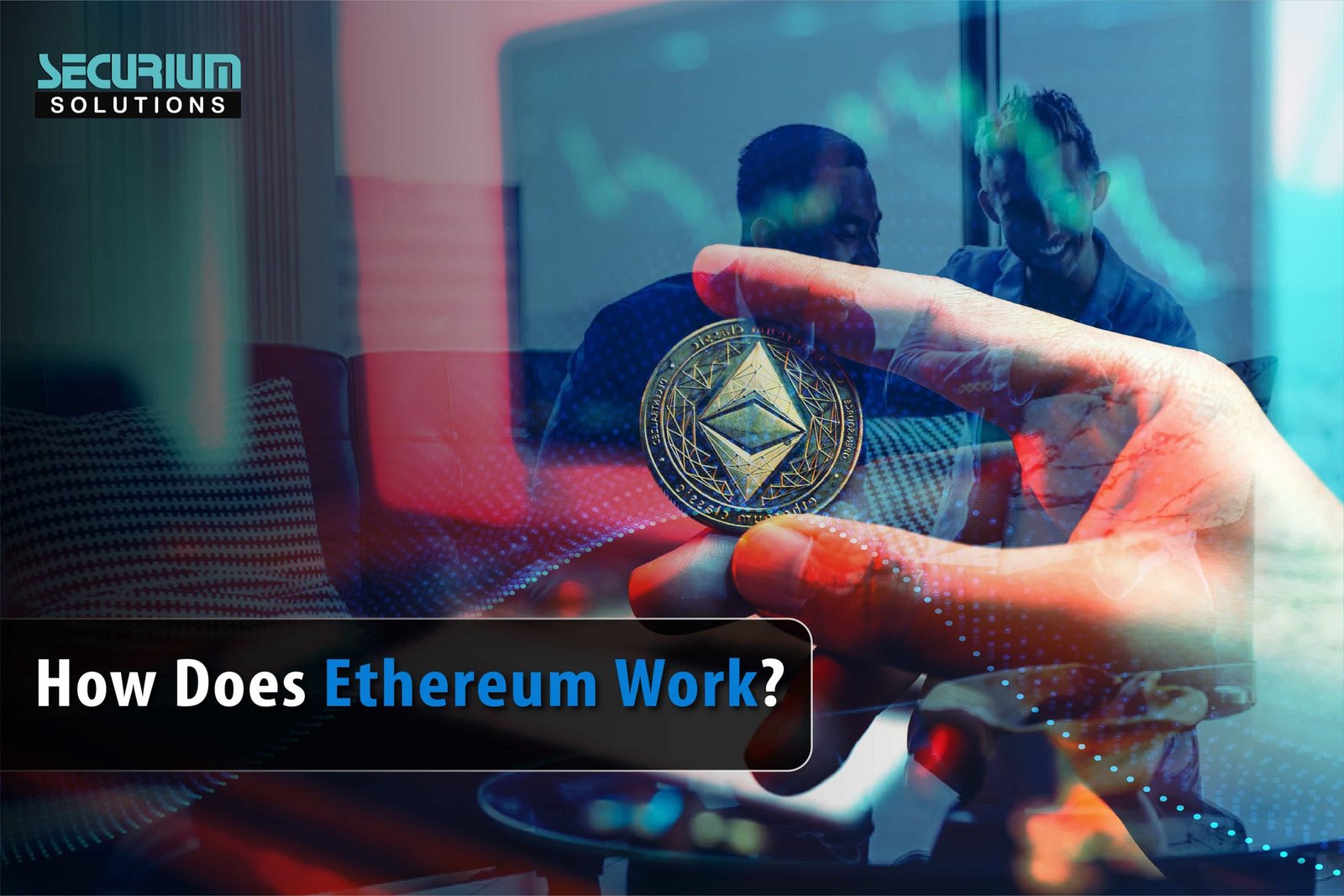Ethereum is a blockchain-based computing platform that gives programmers the ability to create and implement decentralised applications, which are those that are not controlled by a single entity and how Ethereum works. You can design a decentralised application where the decision-making power occupy with the application’s users. The Ethereum network is fueled by its own cryptocurrency called ‘ether’.
Here is the details explanation of how does ethereum work for beginners–
Decentralized Network of Nodes:-
Ethereum operates on a network of machines known as nodes, which are decentralised and come together to maintain the blockchain. The ethereum blockchain, a record of all activities that have taken place on the network, is replicated in every node. To confirm deals and maintain the network’s integrity, nodes converse with one another.
Consensus Mechanism:-
In order to validate transactions and add new blocks to the blockchain, Ethereum uses a consensus method called Proof of Work (PoW), which requires nodes to solve challenging mathematical problems. However, Ethereum is moving towards a Proof of Stake (PoS) consensus method, which will require nodes to stake a certain sum of Ether in order to approve transactions and add new blocks to the blockchain.
Smart Contracts:-
A smart contract is an agreement between two parties written in code and stored on a blockchain. A smart contract automatically executes when specific criteria are satisfied. Smart contracts can fully automate processes like financial dealings and managing supply chains.
The Ethereum Virtual Machine is the execution environment for Ethereum smart contracts. With EVM, executing an operation should not influence the internal state of your data structure nor modify any of your programs.
An EVM is an environment where users can execute Ethereum smart contracts.
Ethereum runs a solitary Turing-complete scripting language called Solidity, thus there is a need to execute the code.
This job can be carried out by a programme known as the Ethereum Virtual Machine (EVM).
Because it is built on top of the Ethereum network, all of the nodes agree on what code should be executed at any particular moment.
Ethereum Cryptocurrency:-
Ethereum runs on its local token called Ether which serves two primary purposes:
-
Ether installment is required for applications to perform any operation so that broken and noxious programs are kept beneath control
-
Ether is compensated as an motivation to the mineworkers who contribute to the Ethereum arrange with their assets- much like bitcoin’s structure.
Each time a contract is executed, Ethereum devours a token which is named as ‘gas’ to run the computations.
Ethereum price, Gas and Transaction Fees:-
Ethereum price, Gas and Transaction Fees: Gas is the cost of performing an operation or executing a smart contract on the Ethereum network. Gas is paid in Ether, and the amount of gas required for a transaction is determined by the complexity of the operation or smart contract being executed. Transaction fees are the amount of Ether paid to incentivize nodes to validate transactions and add them to the blockchain.
Wallets and Interaction with the Ethereum Network:-
In order to participate in the Ethereum network, users need to have a wallet that supports the Ethereum protocol. This wallet allows users to send and receive Ether and other Ethereum-based tokens, as well as link with smart contracts and dapps on the network. Users can interact with the Ethereum network using web-based wallets, hardware wallets, and software wallets.




